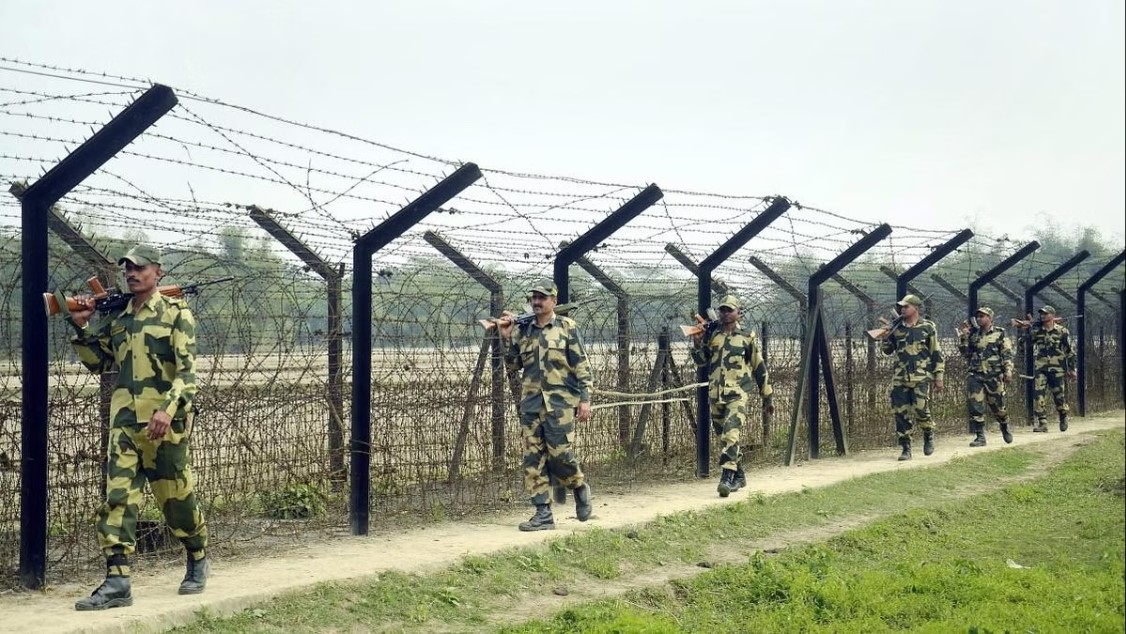MHA Directs CAPFs Nationwide to Embrace BSF's 'Beehives on Border Fence' Approach

India
Central paramilitary forces adopt beekeeping model pioneered by BSF in West Bengal to boost employment and security along India's international borders.
In a bid to enhance employment opportunities in border areas while strengthening security measures, the Union home ministry has directed various central paramilitary and allied forces to replicate a successful beekeeping model pioneered by a BSF unit in West Bengal. This initiative aims to foster goodwill among local communities and deter criminal activities along India's international borders.
The model, developed and implemented by the 32nd battalion of the Border Security Force (BSF) stationed in Nadia district, West Bengal, garnered praise during a recent meeting chaired by Union Home Secretary Ajay Bhalla. Following the meeting, all central armed police forces (CAPFs) have been tasked with adopting this beekeeping approach in their respective regions of responsibility.
While some border guarding forces like the Sashastra Seema Bal (SSB) and the Indo Tibetan Border Police (ITBP) do not have physical fences, they can still implement similar initiatives tailored to their specific duties. The overarching goal is to leverage local resources and community engagement to bolster security efforts.
The primary objective of replicating the BSF West Bengal beekeeping model is twofold: to generate employment opportunities in remote border regions and cultivate positive relationships with local residents, who serve as crucial allies in maintaining security. By involving locals in productive activities, such as beekeeping and horticulture, the initiative aims to mitigate the allure of criminal involvement driven by limited livelihood options.
Initiated in November last year, the BSF unit in Nadia has installed nearly 200 beehives along the India-Bangladesh border fence. This strategic placement not only serves as a deterrent to border crimes like smuggling but also provides a source of income for participating communities. Additionally, efforts are underway to plant flowering and fruit-bearing plants to sustain honeybee populations and support trade activities.
Commandant Sujeet Kumar, the commanding officer of the BSF battalion, emphasized the direct correlation between economic opportunities and border security. Recognizing the need to address root causes of trans-border crimes, the 'beehives on fence' initiative aims to empower local populations through sustainable livelihoods.
Collaborating with the Ayush ministry, the BSF has procured herbal and aromatic plants to complement the beekeeping initiative. This integration aligns with the government's broader agenda, including the vibrant village programme (VVP), which seeks to engage border communities in productive ventures to curb migration and enhance internal security.
Since the inception of the 'beehives on border fence' model, over 100,000 saplings have been planted in Nadia's border area through joint efforts involving BSF personnel, the Ayush ministry, and local volunteers. This collective endeavor underscores the commitment of security forces to not only safeguard the nation's borders but also uplift the socio-economic well-being of border communities.
In conclusion, the adoption of the BSF West Bengal beekeeping model by various central paramilitary and allied forces signifies a proactive approach towards addressing security challenges while promoting sustainable development in border regions. By harnessing the potential of beekeeping and horticulture, these initiatives aim to create a win-win situation for both security agencies and local communities, fostering a safer and more prosperous border environment.


